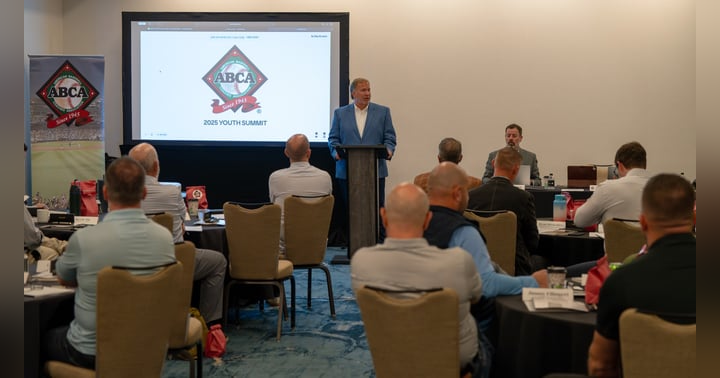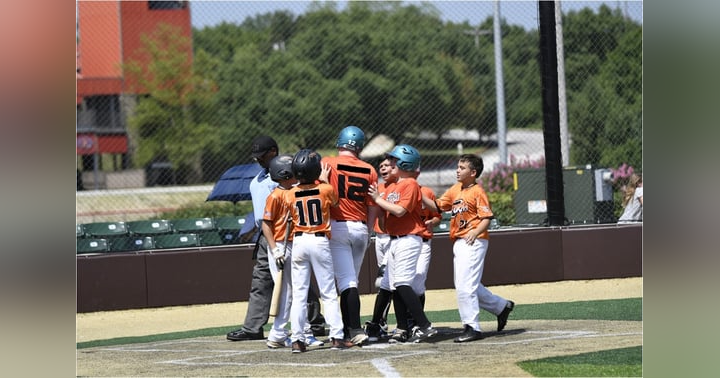June 24, 2024
Coaching the Coaches

We Coach Our Players; Who Coaches Us?
Coaching any level of any sport is not something that just comes naturally to most people, particularly when it comes to baseball. There are so many important facets of the game that a coach needs to address- hitting, baserunning, pitching, fielding and most importantly, the mental game- all while keeping the game fun for the players. Not an easy task!
Another major responsibility is learning how to handle the parents of players, which is a very big topic of discussion for coaches at all levels. Learning the many parts of the game in order to teach our youth players the game of baseball leads me to ask one simple but significant question…..Who is coaching the coaches?
My coaching experience encompasses youth baseball from tee ball up to varsity level high school travel baseball. This journey started about 30 years ago, but my commitment has become particularly stronger in the last ten years. I have been exposed to many different situations that have involved players, parents, umpires, and opposing organizations and their coaches. I have learned through the years that the educational requirements for coaches are minimal- the concept of educating yourself is one that falls squarely upon the person you see in that mirror.
Now, I know that there are “Coaches Certifications” that are required for most youth leagues. They are important, but the topics that are covered only scratch the surface. Many times, when a coach completes the certification course, their education stops there and no further training is required. Travel ball coaches, as far as I know, have no requirements at all, other than customary background checks. High school coach conditions, in my state of NY, are a little more involved. There is certain coursework that must be completed (i.e. CPR, First Aid, Theory and Techniques of Coaching) as a prerequisite, however, there is no continuing education stipulation that I can find.
Does this seem right? I mean, would you coach your team this way? I don’t think that there are many coaches out there that would teach their players how to bunt once and then never speak about it again. So why do institutions do it with coaches? They should be “practicing” with their youth coaches. Coaches practice with their players so that they become better players, are more aware of the objectives of the game, can compete at a higher level and enjoy the experience of playing baseball. Coaches will reap the same benefits if they are also instructed. Organizations need to realize that the coaches are their “team,” just as players comprise the coach’s team.
Youth coaches range from dads that want to coach their kids to former high school players and even higher-level players from college or the professional ranks. Does this qualify them to be competent coaches? Of course not. Former players absolutely understand the game better than most, but it is from a player's perspective, not a coach's. Coaches need structure and would gain the confidence that they need to be successful by receiving guidance. In many cases, volunteer and paid coaches are handed a team and sent out to the field with little or no direction at all.
Player fundamentals need to be built from the time young players first step on the field. Age appropriate drills, practice plans, parent/player codes of conduct, etc. should be shared with the coaches and thoroughly explained so that the coach can be effective. I’m not only talking about very young players, but also at the high school level in both school ball and travel ball. Training the coaches would benefit them and their organizations exponentially.
Coaching the coaches should be the first priority of any organization. These presentations will strengthen the coach’s confidence while creating a positive stature for the school or organization. We are not only teaching the game of baseball, we are also teaching valuable life lessons. Some of the topics that could be discussed are:
• Organizational Mission
• Mental Approach
• Strength and Conditioning
• Practice Planning
• Coaching Philosophy
• Sportsmanship for Players and Parents
• Pitching
• Hitting
• Defense
I am not advocating for daily or even weekly training for coaches. Monthly or even quarterly, a time commitment of as little as 30 minutes once a month or even quarterly, would benefit coaches, their organizations and most importantly, the players!
Another major responsibility is learning how to handle the parents of players, which is a very big topic of discussion for coaches at all levels. Learning the many parts of the game in order to teach our youth players the game of baseball leads me to ask one simple but significant question…..Who is coaching the coaches?
My coaching experience encompasses youth baseball from tee ball up to varsity level high school travel baseball. This journey started about 30 years ago, but my commitment has become particularly stronger in the last ten years. I have been exposed to many different situations that have involved players, parents, umpires, and opposing organizations and their coaches. I have learned through the years that the educational requirements for coaches are minimal- the concept of educating yourself is one that falls squarely upon the person you see in that mirror.
Now, I know that there are “Coaches Certifications” that are required for most youth leagues. They are important, but the topics that are covered only scratch the surface. Many times, when a coach completes the certification course, their education stops there and no further training is required. Travel ball coaches, as far as I know, have no requirements at all, other than customary background checks. High school coach conditions, in my state of NY, are a little more involved. There is certain coursework that must be completed (i.e. CPR, First Aid, Theory and Techniques of Coaching) as a prerequisite, however, there is no continuing education stipulation that I can find.
Does this seem right? I mean, would you coach your team this way? I don’t think that there are many coaches out there that would teach their players how to bunt once and then never speak about it again. So why do institutions do it with coaches? They should be “practicing” with their youth coaches. Coaches practice with their players so that they become better players, are more aware of the objectives of the game, can compete at a higher level and enjoy the experience of playing baseball. Coaches will reap the same benefits if they are also instructed. Organizations need to realize that the coaches are their “team,” just as players comprise the coach’s team.
Youth coaches range from dads that want to coach their kids to former high school players and even higher-level players from college or the professional ranks. Does this qualify them to be competent coaches? Of course not. Former players absolutely understand the game better than most, but it is from a player's perspective, not a coach's. Coaches need structure and would gain the confidence that they need to be successful by receiving guidance. In many cases, volunteer and paid coaches are handed a team and sent out to the field with little or no direction at all.
Player fundamentals need to be built from the time young players first step on the field. Age appropriate drills, practice plans, parent/player codes of conduct, etc. should be shared with the coaches and thoroughly explained so that the coach can be effective. I’m not only talking about very young players, but also at the high school level in both school ball and travel ball. Training the coaches would benefit them and their organizations exponentially.
Coaching the coaches should be the first priority of any organization. These presentations will strengthen the coach’s confidence while creating a positive stature for the school or organization. We are not only teaching the game of baseball, we are also teaching valuable life lessons. Some of the topics that could be discussed are:
• Organizational Mission
• Mental Approach
• Strength and Conditioning
• Practice Planning
• Coaching Philosophy
• Sportsmanship for Players and Parents
• Pitching
• Hitting
• Defense
I am not advocating for daily or even weekly training for coaches. Monthly or even quarterly, a time commitment of as little as 30 minutes once a month or even quarterly, would benefit coaches, their organizations and most importantly, the players!
Inside the 2025 ABCA Youth Baseball Summit
Collaboration, Innovation, and a New Era for Youth Baseball
The world of youth baseball is evolving, and nowhere is that more evident than at the 2025 ABCA Youth Baseball Summit in Austin, Texas. In this special edition of "Clearing the Bases," we …
Clearing the Bases: Building Trust, Accountability, and True Development in Youth Baseball With Zach Lutz
How Coaches, Parents, and Players Can Work Together to Elevate the Game
Youth baseball isn’t just about teaching kids how to swing a bat or field a grounder—it’s about shaping confident, resilient athletes and fostering a positive…





